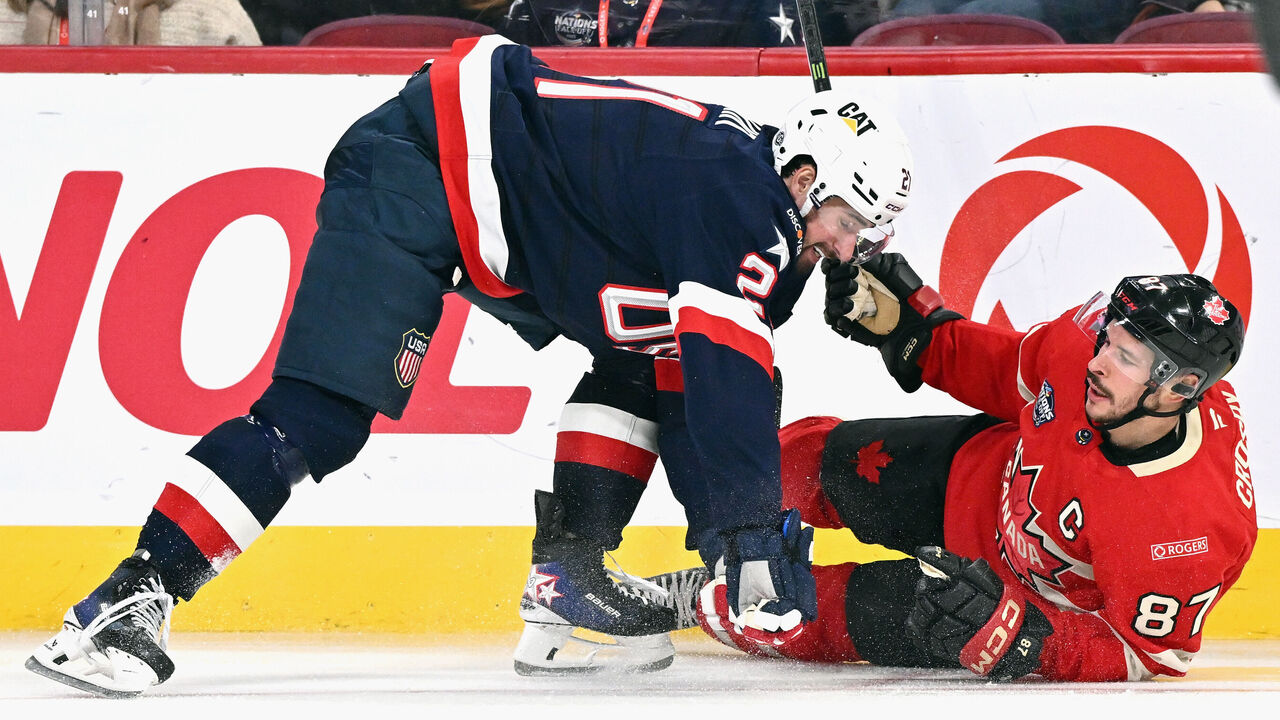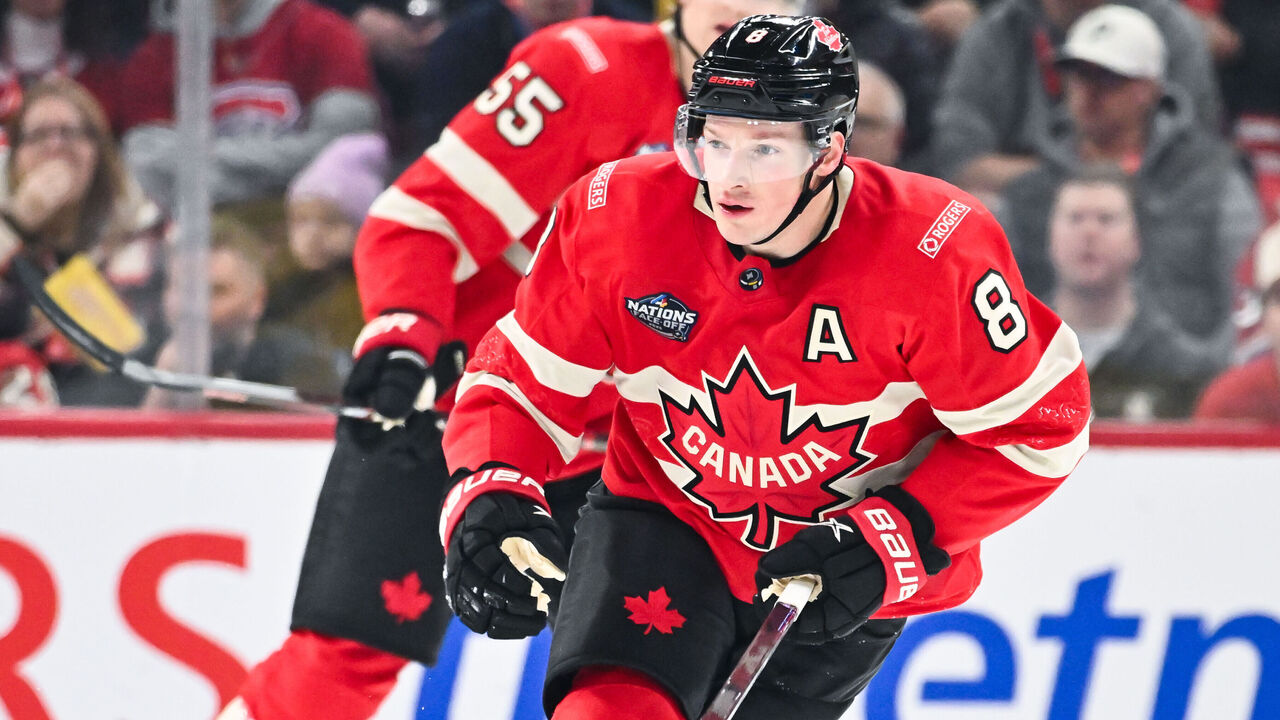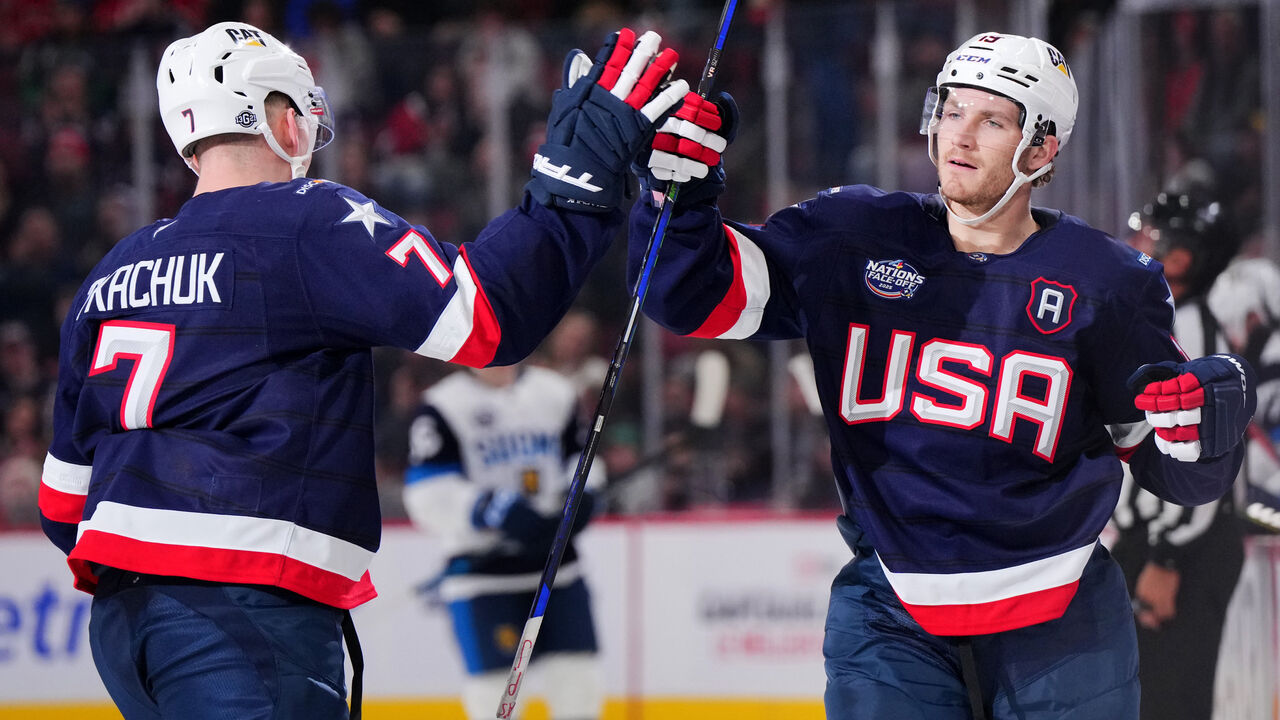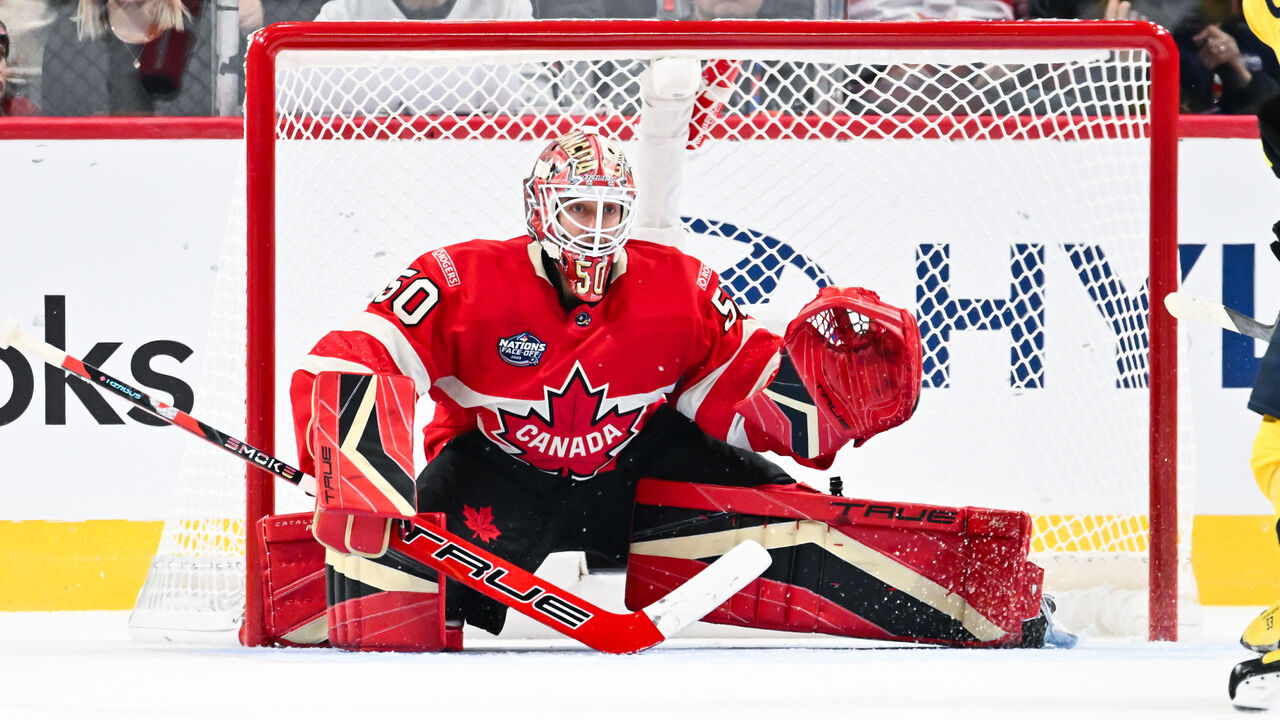4 questions that will decide Canada-USA grudge match
A thrilling finish is guaranteed when the United States plays host to its bitter rival, Canada, in the must-see 4 Nations Face-Off championship game. These storylines will shape Thursday night’s battle in Boston.
Will U.S. stifle Canada's superstars?

Sidney Crosby's errant pass was stolen ahead of the winning snipe when these powerhouse teams traded haymakers Saturday night in Montreal. At other times in the tournament, the captain's fantastic vision and hustle helped him record points on five of Canada's 10 goals.
Crosby and his superstar teammates exploit time and open ice, but a shortage of both doomed them in the previous meeting. U.S. defenders formed a fortress and killed plays in front of Connor Hellebuyck, the runaway Vezina Trophy favorite. Walling off the net manned by the NHL's best goalie is how the Americans erased an early deficit in a hostile environment.
Thursday's rematch could be a legacy game for Connor McDavid and Nathan MacKinnon. Crosby, a World Cup and two-time Olympic champion, can take over the final by creating shots on the move for those budding legends or complementary weapons such as Brayden Point.
Hellebuyck's allowed two goals in two starts. Both were scored in transition, including when McDavid accepted a pass with a head of steam and split the U.S. defense.
The Americans outshot opponents 88-70 in the round robin. They boast excellent skaters, including shutdown partners Jaccob Slavin and Brock Faber, and took only one obstruction minor against Canada, whose power play is 1-for-3 overall. That unit's brilliant lone goal - Crosby put a spinning backhand feed on MacKinnon's tape - showed what can happen within seconds if Canada draws penalties.
Can Makar control the tempo?

Canada is undefeated in two games with Cale Makar in the lineup and lost the lone game he missed against USA. Coincidence?
The Americans' second-biggest advantage over Canada - after goaltending - is arguably their forecheck. Brady and Matthew Tkachuk were forces to be reckoned with in the first meeting. J.T. Miller and Matt Boldy imposed their will physically, too.
The best kryptonite for an aggressive forecheck? A dynamic, puck-moving defenseman such as Makar who's equally dangerous at skating his way out of trouble or snapping a breakout pass to one of Canada's high-flying forwards. In a game with such high stakes, you can bet he'll log more than 25 minutes.
His presence slots every blue-liner more appropriately down the lineup. Devon Toews gets familiarity with his longtime partner back. Josh Morrissey and Colton Parayko can operate as the second pair again. Travis Sanheim moves back to his natural, left side on the third pair with Drew Doughty.
Canada's attack runs through Makar. He's someone the U.S. has to specifically game-plan for. He can make a game-breaking play to turn the tide in Canada's favor.
Are the Americans too banged up?

Auston Matthews and both Tkachuk brothers missed all or most of the round-robin finale. Center Vincent Trocheck briefly exited after blocking a pass with his hand. No team escapes injuries, but a significant chunk of Mike Sullivan's forward corps is limping into the final, and key defenseman Charlie McAvoy is already ruled out.
Each forward plans to dress Thursday. Leading scorers Jack Eichel and Jake Guentzel, along with defenseman Zach Werenski, can spark offense without much added help. Once the puck drops, we’ll see if the lineup is visibly compromised or skating at full bore.
The Tkachuk brothers' past week was a wild ride. They menaced Finland with four goals, 13 shots on net, and 10 hits. They fought Canada's Brandon Hagel and Sam Bennett in the opening seconds to antagonize the Bell Centre crowd. They relish villainy and will inflict punishment on every shift - unless they're laboring and are forced to chase the play.
Jon Cooper's reshuffled bottom six is built to combat their impact. Anthony Cirelli's checking line hounds the puck. An abrasive Bennett-Brad Marchand-Seth Jarvis trio can bang bodies, get in Hellebuyck's grill, and potentially convert a chance.
Will Binnington let in a softy?

It's no secret the United States' biggest strength is also Canada's biggest weakness: goaltending.
Jordan Binnington has had an up-and-down tournament. His aggressive puck handling has helped tremendously on Canada's breakouts. He's made some timely saves, too. But he's also allowed at least one soft goal every game. Adrian Kempe handcuffed him with a wrister against Sweden, Guentzel snuck one five-hole that proved to be the difference against the U.S., and Esa Lindell beat him from a sharp angle to spark Finland's near-epic comeback.
Goaltending is one of the most volatile positions in sports. Any netminder at this level is capable of outplaying any counterpart when it comes down to one game. Binnington's last winner-take-all game also came at Boston's TD Garden when he stopped 32 of 33 shots in Game 7 of the 2019 Stanley Cup Final, leading the St. Louis Blues past the Bruins.
With Hellebuyck in the opposing crease, Binnington will have to be nearly perfect. In a game that projects to be decided by inches, one soft goal allowed by Binnington will likely be the difference between being Canada's hero or scapegoat. No pressure.
Nick Faris and Josh Wegman cover the NHL for theScore.